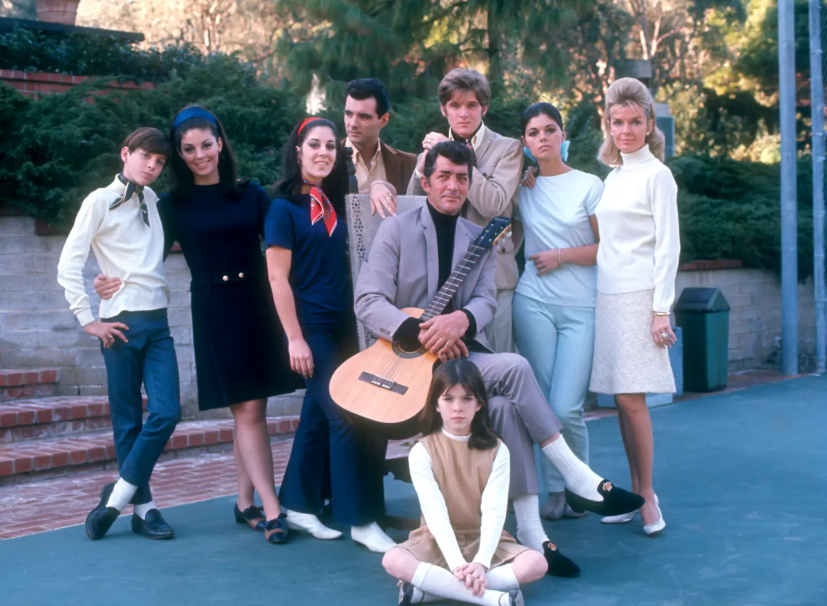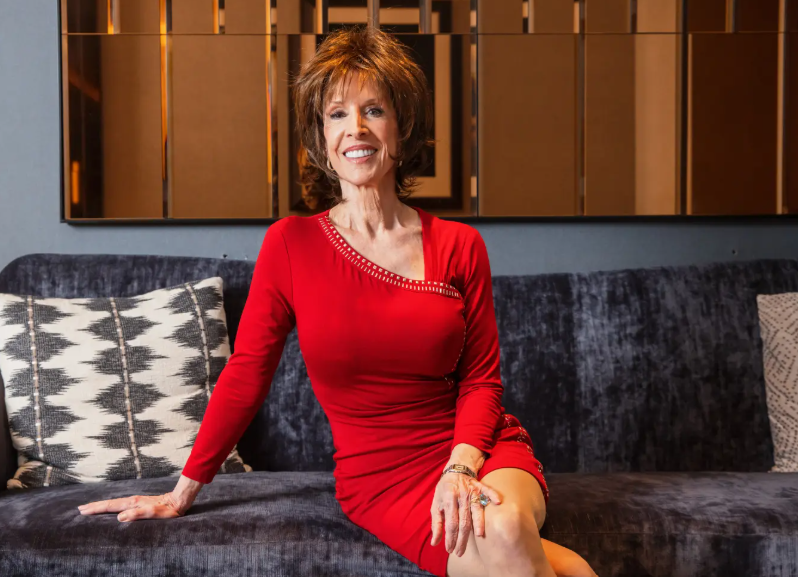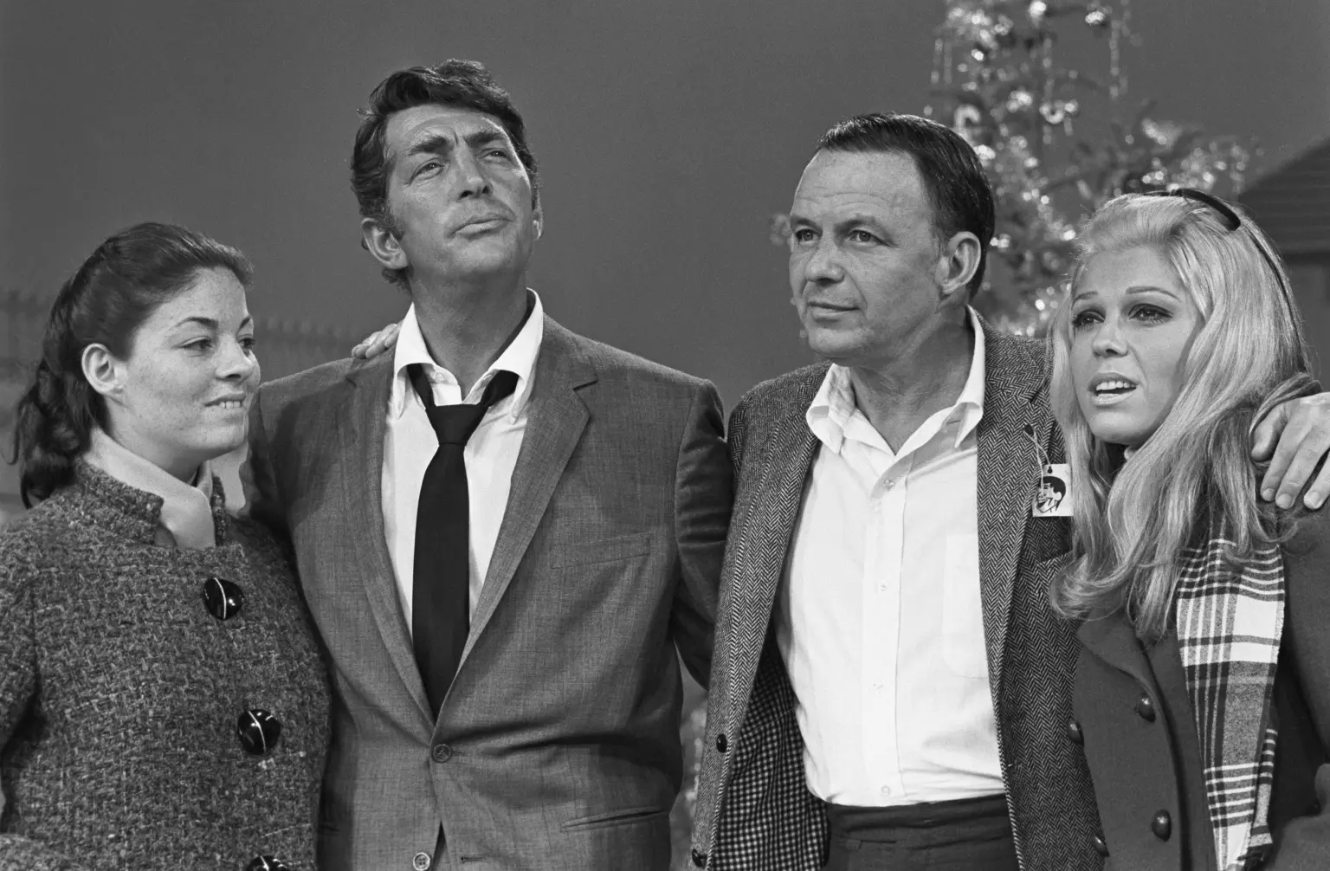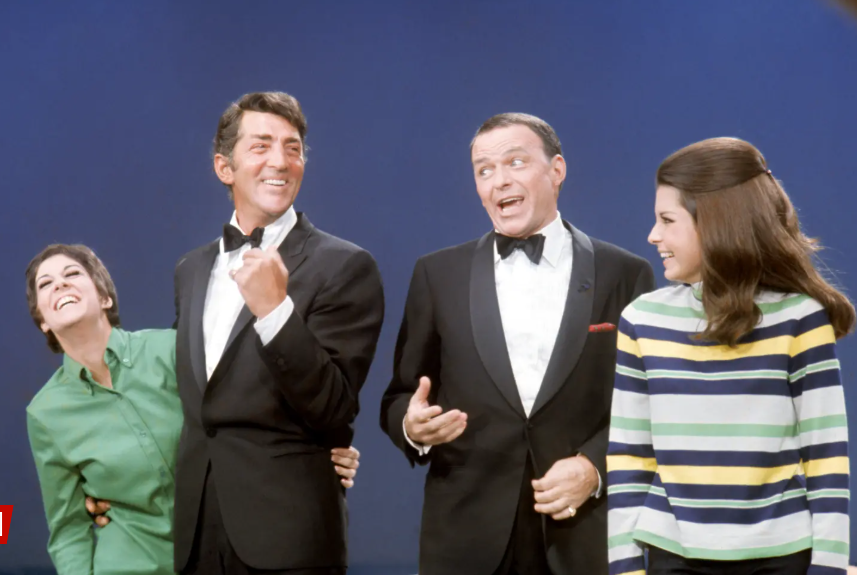The fourth of eight kids, Deana grew up in a household where life “was fun — almost all the time.” There was a who’s who of drop-ins, including fellow Rat Packers Frank Sinatra and Sammy Davis Jr., otherwise known as “Uncle Frank” and “Uncle Sammy” as “a sign of respect.”
Guests like Sammy Cahn would come over to write parodies or play “Time After Time” on the piano. While it could feel like business as usual in the Martin home, Deana admitted, “Of course you think, ‘Oh my gosh, I’m singing Christmas songs on Christmas Eve with Rosemary Clooney.’ ”

When she was about 17, Martin and Sinatra took Deana and a friend to Las Vegas. “We went out on the town with Dean Martin and Frank Sinatra. We went to see Don Rickles, and he was so afraid to come out because they were in the audience,” recalled Deana. “I’ve never seen my dad laugh so hard. That was my first time out with the guys. It was so much fun. They knew how to take care of us.”

Martin and Sinatra were the best of friends, on and off stage. “They respected each other — they were not jealous of each other,” said Deana, adding that Sinatra made matching diamond pinky rings with his signature crest for the bosom buddies. Dean reportedly never took his off. Exchanging meaningful gifts was de rigueur. “They gave each other gold cigarette lighters.”
The Rat Pack was a big part of his professional and personal life. Rising political star John F. Kennedy would even catch the act in Vegas. While Sinatra angled for a spot in the administration, according to the doc, Martin supported JFK without wanting to get too close.

“He said, ‘If JFK becomes president, I’m going to ask him if I could become the secretary of liquor,’” Deana recalled her dad joking. Martin strongly supported the civil rights movement, and when Sammy Davis Jr. wasn’t invited to the new president’s inauguration, Martin refused to go out of loyalty to Davis, who was in a mixed-race marriage with May Britt. “Sammy was one of them, his wife was one of them. If you could un-invite Sammy, Dad’s thinking was, ‘I’m not going to go. He’s my friend. That’s not right,’ ” said Deana. “That’s who Dad was.”
While Sinatra, referred to as a “dictator” in the doc by Martin biographer James Kaplan, would stay up schmoozing until 5 a.m., Martin just wanted to go home to his wife, Jeanne Martin, and the kids.

Pretending to be a neighbor on Beverly Hills’ Mountain Drive, he once called the police on his daughter’s 18th birthday party so he could get some shut-eye. The cops recognized his voice immediately. “They just said, ‘Uh, OK, Mr. Martin, we’ll be right over.’ “ To which he responded: “No, I’m not Mr. Martin, I’m an irate neighbor.” Other times, he was more direct. “He’d go around turning off the lights, guests still there, saying, ‘OK, it’s time to go,’ ” Deana said.
After a successful nine-year run with his “The Dean Martin Show” (1965-1974), Martin enjoyed golf and solitude. In the documentary, he’s painted as an enigmatic figure. “When you’re in Dean’s company, were you?” Norman Lear says, while Sinatra’s manager notes, “Dean had a wall no one got past.” Deana sees his pathos differently. “I think he was content with who he was,” she said. “He didn’t talk a lot and people thought that was mysterious. But he was out there entertaining people all his life.”
